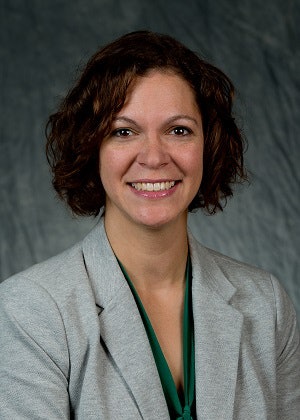Achieving “equity-minded assessment” is the focus of a new report from the National Institute for Learning Outcomes Assessment (NILOA) that examines existing practices and recommends changes to address the needs of an increasingly diverse college student population.
The January 2020 report, “A New Decade For Assessment: Embedding Equity into Assessment Praxis,” suggests new models that actively involve students throughout the process and offer enhanced professional development for relevant personnel.
Co-authored by Dr. Natasha A. Jankowski and Erick Montenegro, the latest report builds upon a 2017 NILOA paper that led to a national conversation around the issue of culturally responsive assessment.
“Far too often, we compare the outcomes of students of color to those of White students,” this year’s report stated. “White students are then normed as the population to which others should strive.” The authors explained that such comparisons, especially if not worded or contextualized appropriately, can send the message that non-White students should strive to be like their White peers without examining the unique experience of non-White students.
 Dr. Natasha A. Jankowski
Dr. Natasha A. Jankowski“When we see it in assessment, it’s sort of under the guise of measurement that they’re applying these theories,” Jankowski told Diverse, “but the theories they’re applying are based on a student population that we’re not serving right now. ” She added that assessments should involve “really seeing who our students are and how they learn and what we can do to support them in the way that they are learners.”
Jankowski is NILOA’s executive director and research associate professor at the University of Illinois Urbana-Champaign in the Department of Education Policy, Organization and Leadership. Montenegro, co-author of the report, is a doctoral student in the Education Policy, Organization and Leadership program at the University of Illinois and NILOA’s communications coordinator and research analyst.
In a section titled “Socially Just Assessment,” the authors contend that assessment is not an apolitical process. “We need to first understand how systems of power and oppression influence how students experience college, engage with the learning process and build knowledge before we can understand how to better assess their learning,” the report stated.
It further theorized that power and oppression can factor into the assessment process when selecting whose voices to include “and the methods we use or processes we follow.” The authors found that assessment is typically planned and carried out by faculty and administrators, and changes are implemented according to what faculty and administrators assume to be most appropriate. Seldom are students involved to verify that the assumptions are appropriate or meet their needs.
Jankowski and Montenegro also point out the need for students to have roles, “ranging from curating their own collections of evidence related to learning outcomes, [to] participating in transparent assessment design, or simply helping to rewrite learning outcome statements in student-focused language.”
Drawing upon abundant research related to assessment, equity and cultural diversity, the report identified six guidelines for equity-minded assessment:
Check biases and ask reflective questions throughout the assessment process to address assumptions and positions of privilege.
- Use multiple sources of evidence appropriate for the students being assessed and assessment effort.
- Include student perspectives and take action based on perspectives.
- Increase transparency in assessment results and actions.
- Ensure collected data can be meaningfully disaggregated and interrogated.
- Make evidence-based changes that address issues of equity that are context-specific.
- Make evidence-based changes that address issues of equity that are context-specific.
Jankowski said she and her colleagues at the institute embarked on the 2020 report after receiving a positive response to the 2017 paper, and they plan to continue their work in equity assessment. “We wanted to create a space where people could have this conversation because, if we are not talking about this, we should be,” she said. “For us, we aren’t done. We started the conversation and conversations are great; it’s been wonderful to see it get this far, but we’ve got to keep it moving.”















